Alumni Spotlight | Andrew DeVaney: Home in the Hard Places
By Josh Battle
Uganda, called the “Pearl of Africa,” is renowned for its stunning landscapes and abundant wildlife. It’s also a nation grappling with high poverty rates and one of the youngest, fastest-growing populations in the world. For Andrew DeVaney, Uganda is more than just a far-off place of enchantment; it’s a country and, more specifically, a people that has profoundly shaped his life and mission.
Growing up in South Dakota, Andrew was first captivated by the beauty of another place—the Colorado Rockies.
“In high school, I attended a Christian camp at the YMCA of the Rockies in Estes Park,” he recalled. “I only went because my friends were going. I thought I’d spend the week in Colorado sneaking off to hike during the teaching sessions.”
But God had other plans.
“To my surprise, it was there that He captured my heart and changed my life,” Andrew reflected.
That spiritual awakening set him on a path toward deeper faith and service. He pursued a Religion Studies and Christian Leadership degree at Dakota Wesleyan University, where he played football and strengthened his spiritual walk. During the summer following his junior year, a life-changing eleven-week trip to East Africa became pivotal to his future.
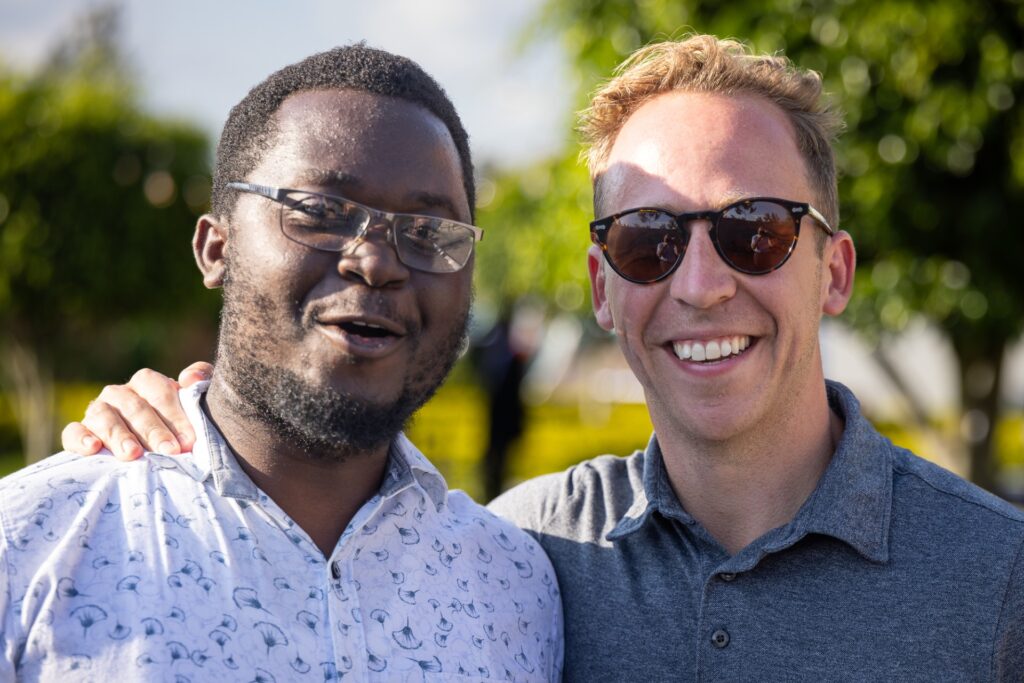
“I was volunteering at a small school during that first trip when I met Henry Iwumbwe,” he said. “We quickly became great friends.”
Andrew’s bond with Henry inspired him to return to Uganda the summer after graduation before moving to Colorado to attend Denver Seminary. While pursuing a Master of Divinity, he continued to nurture relationships with friends in Africa. His experiences and seminary education ultimately led him and Henry to co-found AsOne Ministries, a 501(c)(3) organization that works to alleviate poverty in Uganda’s most marginalized and underserved regions.
As a rural community development organization, AsOne Ministries focuses on creating spiritual, social, and economic change through sustainable solutions in education, enterprise, health, and agriculture. The organization is committed to empowering local Ugandan leaders to bring about the deep and enduring transformation they desire for their most impoverished communities.
AsOne’s motto, “Creating a movement of Ugandans empowering Ugandans,” is more than just a canny tagline; it reflects the very heart of the organization’s mission.
“When we say Ugandans empowering Ugandans, we want it to be more than a catchphrase,” Andrew said. “Those who grow up with a problem and are close to it understand it better than those who are far away. It’s why we don’t have missionaries; native Ugandans lead all our efforts from the very communities we serve. I see that statement as a lived reality.”
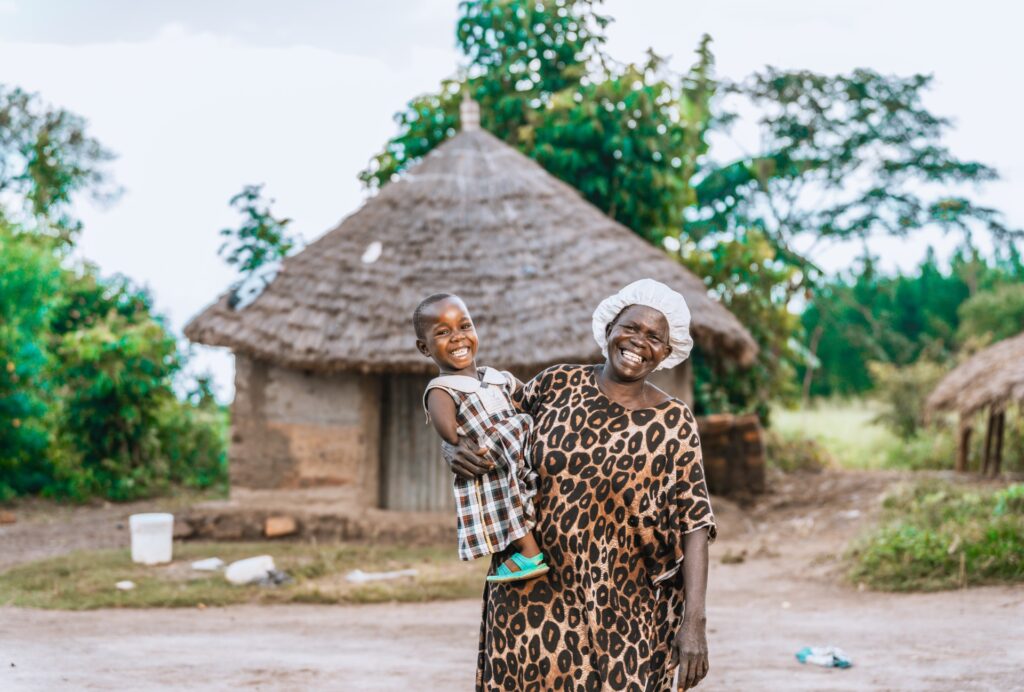
This declaration of purpose, largely influenced by his seminary training, has catalyzed and guided Andrew’s vision for addressing the major issues facing rural communities across Uganda.
“Every time I traveled to Africa, I went without the goal of fixing anything,” he said. “I simply went to build relationships. My mindset was shaped by books like When Helping Hurts and seminary instructors who taught me that sometimes, God doesn’t want us to fix all the problems right away. Instead, we need to be open to learning, listening, and paying attention to how God is already at work in those places.”
“It’s through that slow work that God does the most profound things in both our lives and the lives of others,” he reflected. “My goal was to build friendships and see where God would take it.”
The foundation of Andrew’s ministry is rooted in John 17:21: “that all of them may be one, Father, just as you are in me and I am in you. May they also be in us so that the world may believe that you have sent me.”
“Jesus is praying in the garden that believers would be one as He is with the Father so that the world would know Him through that,” Andrew shared. “Being united, walking alongside, and working with different people groups can be an incredible witness to the broader culture. God’s redemptive work in us and all of creation is a signpost to the future that we, as Christians, long for.”
Today, about 75% of Uganda’s population—roughly 30 million people—live in rural areas. These communities often lack basic infrastructure such as clean water, electricity, schools, and healthcare facilities, as well as sustainable ways for residents to generate income. This level of poverty has widespread consequences, affecting not just quality of life but creating a daily struggle for survival.
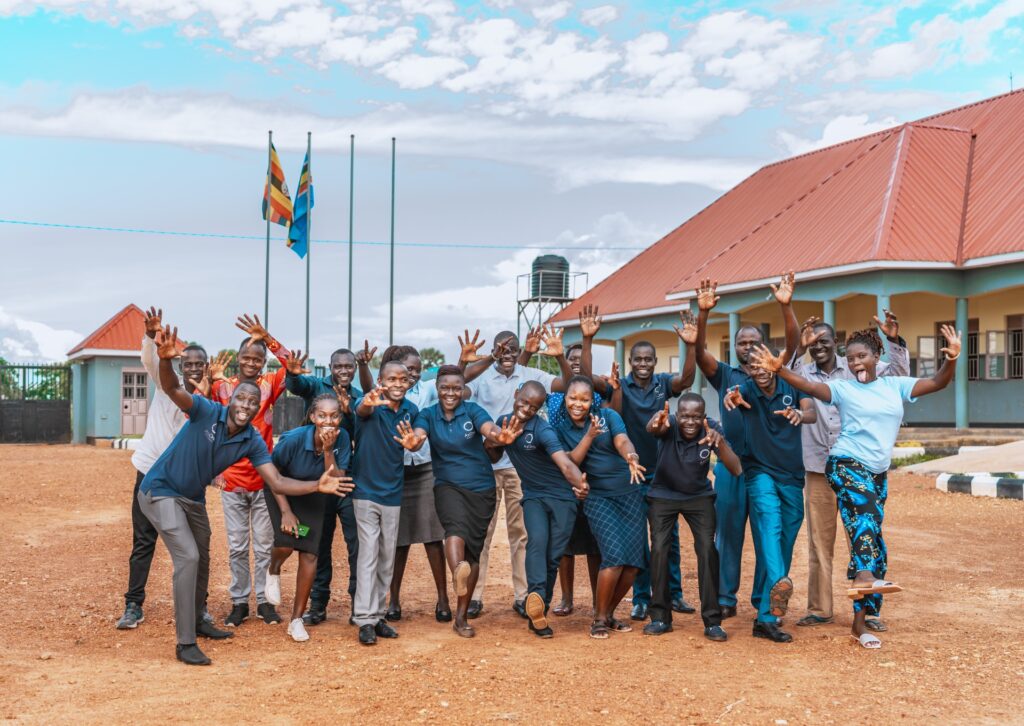
“Poverty impacts everything,” Andrew explained. “Maternal death rates in Uganda are twenty times higher than in the United States, and tropical diseases like typhoid and malaria, which are extremely rare here, are among the leading causes of death.”
Andrew paints a stark picture for most of Uganda’s rural population: daily life is a struggle.
“Even today, we sometimes go a week without electricity,” he said. “In some of the areas where we work, there is no power infrastructure at all. And many regions don’t have paved roads for thirty to sixty kilometers. The lack of resources makes the hardships in rural communities even more pronounced.”
However, Andrew and his friend Henry, who serves as AsOne’s Executive Director, share a passion for helping the poor move beyond aid and charity—or cycles of dependency as they call it—and move instead towards investment and development.
To create lasting solutions, AsOne uses a one-time $1 million capital investment to purchase land, build infrastructure, and develop income-generating assets. These assets—such as schools, healthcare facilities, farms, and businesses—help generate jobs, educate students, provide healthcare, train farmers, and offer vocational skills training for young people. The AsOne model serves thousands of people from the surrounding areas, and these diversified sources of revenue result in a self-sustaining community.
It’s an approach that puts Ugandans in the driver’s seat for creating lasting and meaningful change in the hardest-to-serve areas.
By addressing the critical challenges rural communities face, AsOne Ministries is transforming these difficult areas into places people can truly call home—a home in the hard places, but one filled with hope and promise.
In 2023, AsOne served more than 38,000 Ugandans across five rural communities. Their solutions have provided access to quality education, discipleship, and life skills to nearly 1,400 students, free or low-cost healthcare and medicines for more than 18,000 patients, and training in sustainable farming practices for over 18,500 farmers.
Andrew’s vision is to keep going.
AsOne’s Vision 2030 initiative is ambitious. It foresees growth to reach more than 200,000 individuals and aims to double its footprint by expanding from five locations to ten.
“We are developing our sixth and seventh locations now,” he said. “We have experienced a lot of wonderful outcomes with this model. We educate kids and create jobs through the schools. We serve thousands of patients at our healthcare centers. We have a farmer training program and provide vocational training at our different businesses for young people who have dropped out of school.”
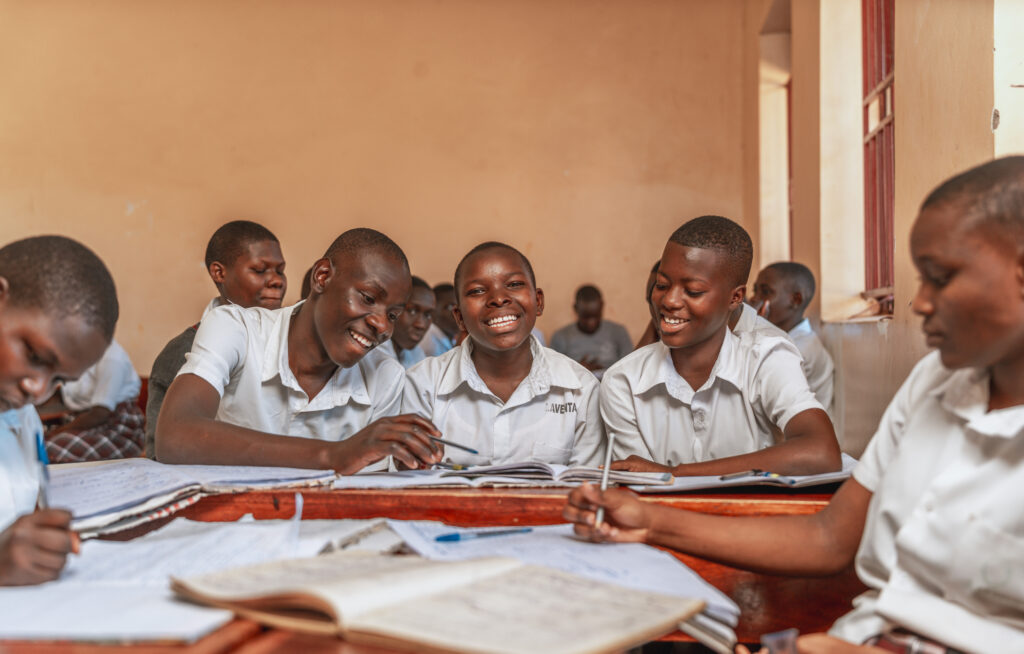
Since his first trip to East Africa in the summer of 2014, Andrew has remained steadfast in seeing local, impoverished, rural communities transformed.
“I believe an important part of missions is helping people to discover their own agency,” he shared. “We need to help people, not just be on the receiving side of services. We’ve structured the organization that way, so it doesn’t just stop at we did this for you. Instead, it becomes we’re doing this for one other.”
AsOne Ministries is committed to this approach: individuals take collective ownership over shared challenges. Those who live in the community must be a part of the solution. It’s not a handout. Nor is it charity.
By empowering the very people who call these places home, AsOne is investing in the people of Uganda to transform their country one rural community at a time.
“If Denver Seminary offered me anything, it was a more holistic understanding of God’s work in the world and how he is redeeming all things seen and unseen,” Andrew reflected. “We want our work to echo this truth, but it also needed re-imagination of how to function well cross-culturally.”
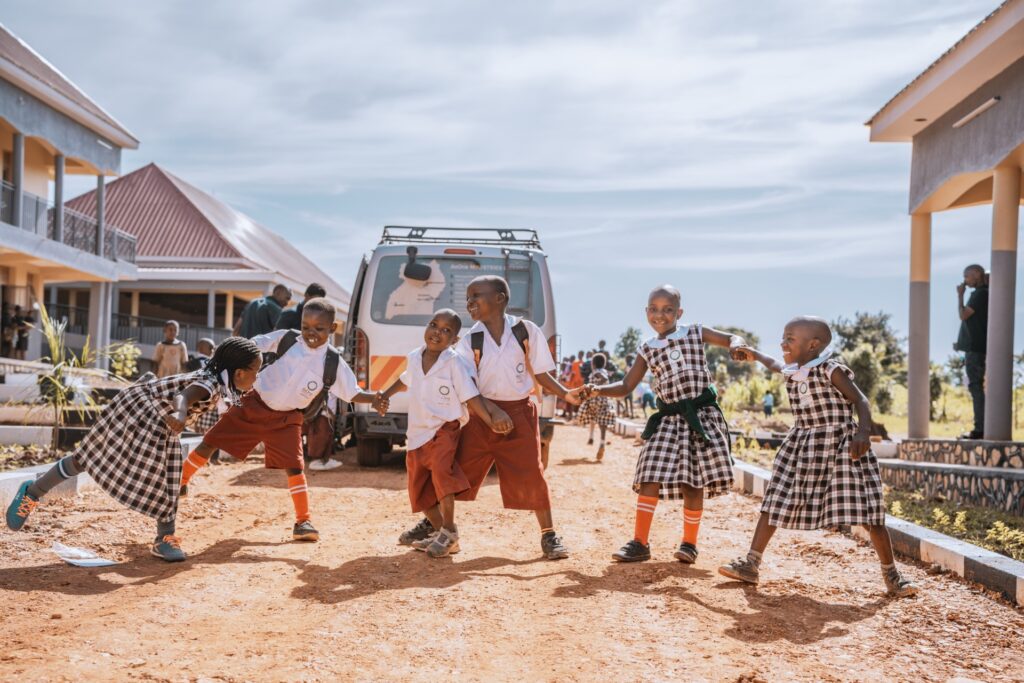
“That is why we built a model that puts those who grew up in poverty and live close to the problem in the driver’s seat to transform their communities and country. And that’s the invitation: we give people agency to take ownership and feel that they have something to offer their communities.”
Solutions are desperately needed for a country like Uganda. While the problems are complex and even more pronounced in rural communities, at its core, AsOne’s strategy brings dignified opportunities for the people of Uganda to address their country’s most challenged places.
“I became very interested in and concerned for rural areas on a theological level,” Andrew shared. “I feel God’s wildly in love with places like Uganda. We are trying to take a bet on expanding and investing in the hard places and saying it’s worth it. It’s worth the hardship of empowering people who live in challenging circumstances, experienced trauma, or grew up in poverty. These are the areas that receive the least amount of funding. They’re the highest risk. Organizations do drop-in interventions, but no one wants to create permanent solutions because buying real estate and investing money in infrastructure is such a big risk.”
“But I think the hard places are worth risking for,” he offered. “In some ways, I feel like it’s smack dab right where the people of God should be: in the hard places.”
